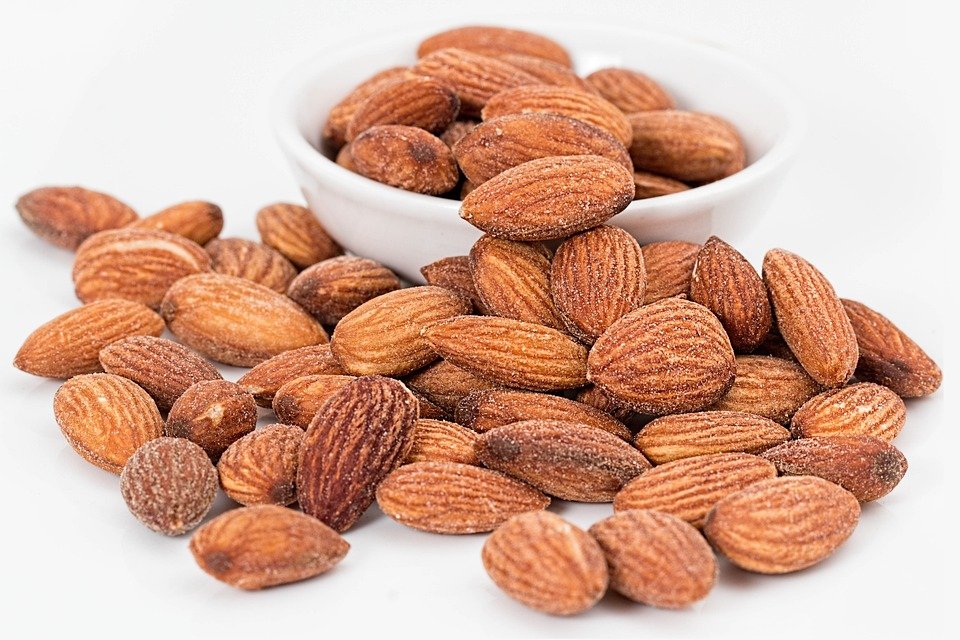Lose Weight Breastfeeding Diet
Lose Weight Breastfeeding Diet: A Guide to a Healthy Postpartum Journey
Introduction
Congratulations on your new addition to the family! As a new mother, you may be eager to shed those extra pounds gained during pregnancy. However, it is essential to approach weight loss while breastfeeding with caution, as your body requires adequate nutrition to support both you and your baby. In this article, we will explore the concept of a lose weight breastfeeding diet, providing you with valuable insights and tips to embark on a healthy postpartum weight loss journey.
1. Understanding the Importance of Nutrition during Breastfeeding
1.1 Nourishing Your Body and Your Baby
Breastfeeding is a beautiful bonding experience that offers numerous benefits for both you and your baby. It not only provides essential nutrients to support your little one’s growth and development but also aids in building their immune system. However, it is crucial to remember that breastfeeding requires extra calories to sustain milk production. Therefore, maintaining a balanced and nutritious diet is vital for you to stay healthy while providing the best nourishment for your baby.
1.2 The Role of Calories
While it may be tempting to drastically reduce your calorie intake to promote weight loss, it is important to approach this with caution. Consuming too few calories can negatively impact your milk supply and overall energy levels, making it challenging to meet the demands of motherhood. Instead, focus on maintaining a moderate calorie deficit, aiming for a gradual and sustainable weight loss of around 1-2 pounds per week.
2. Designing a Healthy Lose Weight Breastfeeding Diet
2.1 Balanced Macronutrient Intake
To create a lose weight breastfeeding diet, it is essential to maintain a balance of macronutrients – carbohydrates, proteins, and fats. Carbohydrates provide energy, proteins support tissue repair and growth, and fats aid in hormone production. Aim for a well-rounded diet that includes whole grains, lean proteins, healthy fats, and an abundance of fruits and vegetables. Avoiding processed foods and sugary snacks will not only benefit your weight loss goals but also contribute to your overall well-being.
2.2 Prioritizing Hydration
Staying hydrated is crucial during breastfeeding, as it helps maintain an adequate milk supply and supports your body’s functions. Additionally, drinking water can help curb hunger and prevent overeating. Aim to consume at least eight glasses of water per day and include hydrating foods such as fruits and vegetables in your diet. Remember to listen to your body’s cues and drink whenever you feel thirsty.
2.3 The Power of Superfoods
Incorporating nutrient-dense superfoods into your lose weight breastfeeding diet can provide an extra boost to your overall health and well-being. Foods such as salmon, spinach, almonds, and blueberries are rich in essential vitamins, minerals, and antioxidants. These superfoods can help enhance your energy levels, promote a healthy metabolism, and support your body’s recovery post-pregnancy.
3. The Role of Exercise in Postpartum Weight Loss
3.1 Starting Slowly and Gradually
Engaging in regular physical activity is an important component of a lose weight breastfeeding diet. However, it is crucial to approach exercise with caution, especially during the early stages of postpartum recovery. Begin with gentle exercises such as walking or postnatal yoga, gradually increasing the intensity and duration as your body strengthens. Always listen to your doctor’s recommendations and pay attention to any discomfort or pain during exercise.
3.2 Incorporating Strength Training
Strength training can be highly beneficial for postpartum weight loss, as it helps build lean muscle mass and boosts metabolism. Including exercises that target major muscle groups, such as squats, lunges, and push-ups, can help tone your body and increase calorie burn. However, it is important to consult with a fitness professional to ensure proper form and technique, especially if you are new to strength training.
3.3 Finding Opportunities for Physical Activity
As a new mother, finding time for exercise can be challenging. However, incorporating physical activity into your daily routine is possible with a little creativity. Take advantage of opportunities such as going for walks with your baby in a stroller, joining mommy-and-me fitness classes, or even dancing around the house while carrying your little one. Remember, every bit of movement counts, and consistency is key to achieving long-term results.
Conclusion
Embarking on a lose weight breastfeeding diet requires a balanced approach that prioritizes both your health and your baby’s well-being. By focusing on nourishing your body with a variety of nutrient-dense foods, staying hydrated, and incorporating regular exercise, you can achieve gradual and sustainable weight loss while maintaining a healthy milk supply. Remember to listen to your body, be patient with yourself, and celebrate each milestone achieved on your postpartum journey towards a healthier you.
Frequently Asked Queries Concerning Lose Weight Breastfeeding Diet
1. Is it safe to diet while breastfeeding?
Yes, it is generally safe to diet while breastfeeding, but it is important to approach it with caution and ensure that you are still providing your body with the necessary nutrients.
The three most important information about dieting while breastfeeding are:
1. It is recommended to wait until your baby is at least two months old before actively trying to lose weight.
2. It is important to consume enough calories to support breastfeeding and maintain your energy levels.
3. Focus on making healthy food choices rather than restricting calories excessively.
2. How many calories should I consume while breastfeeding?
The number of calories you need while breastfeeding depends on various factors such as your pre-pregnancy weight, activity level, and the age of your baby.
The three most important information about calorie consumption while breastfeeding are:
1. On average, breastfeeding mothers need an additional 300-500 calories per day to support milk production.
2. It is important to listen to your body’s hunger and fullness cues and eat when you are hungry.
3. Consuming a well-balanced diet that includes fruits, vegetables, whole grains, lean proteins, and healthy fats is crucial for both you and your baby’s health.
3. What foods should I include in my breastfeeding diet?
Including a variety of nutritious foods in your diet is essential for maintaining a healthy weight while breastfeeding and ensuring that you and your baby receive adequate nutrients.
The three most important information about foods to include in a breastfeeding diet are:
1. Focus on consuming plenty of fruits, vegetables, and whole grains for essential vitamins, minerals, and fiber.
2. Include lean sources of protein such as poultry, fish, legumes, and tofu to support muscle maintenance and repair.
3. Don’t forget to include healthy fats from sources like avocados, nuts, and seeds, as they provide important nutrients and support brain development in your baby.
4. Are there any foods I should avoid while breastfeeding and trying to lose weight?
While you don’t necessarily need to avoid specific foods while breastfeeding and trying to lose weight, there are certain foods that you may want to consume in moderation or limit.
The three most important information about foods to avoid or limit while breastfeeding and trying to lose weight are:
1. Limit your intake of highly processed and sugary foods as they provide empty calories and lack important nutrients.
2. Caffeine and alcohol should be consumed in moderation, as they can pass into breast milk and affect your baby.
3. If you notice that certain foods cause discomfort or fussiness in your baby, you may want to avoid them temporarily and consult a healthcare professional if needed.
5. Can exercise help me lose weight while breastfeeding?
Yes, incorporating exercise into your routine can be beneficial for weight loss while breastfeeding, but it is important to start gradually and listen to your body’s needs.
The three most important information about exercising while breastfeeding are:
1. Start with low-impact exercises such as walking, swimming, or postnatal yoga, and gradually increase intensity and duration as your body adjusts.
2. Aim for at least 150 minutes of moderate-intensity aerobic activity per week, spread throughout the week.
3. Remember to stay hydrated and wear a supportive bra while exercising, as breastfeeding can increase breast size and sensitivity.
1. Breastfeeding automatically leads to weight loss
One common misconception about the “Lose Weight Breastfeeding Diet” is that breastfeeding alone will automatically lead to significant weight loss. While it is true that breastfeeding can help some women shed a few pounds, it is not a guaranteed method for losing weight. The amount of weight lost varies from person to person, and factors such as genetics, metabolism, and overall lifestyle choices also play a significant role in weight management.
2. You can eat whatever you want while breastfeeding
Another misconception is that breastfeeding allows women to eat whatever they want without consequence. While it is true that breastfeeding burns extra calories, consuming a healthy and balanced diet is still crucial for both the mother’s and the baby’s well-being. It is important to remember that the quality of nutrients in breast milk depends on the mother’s diet. Eating a variety of nutrient-dense foods, including fruits, vegetables, whole grains, lean proteins, and healthy fats, is essential for providing the necessary nutrients to the baby and supporting the mother’s overall health.
3. Skipping meals or severely restricting calories is safe
Some women believe that skipping meals or severely restricting their calorie intake is an effective way to lose weight while breastfeeding. However, this is a dangerous misconception. Breastfeeding requires extra energy, and not consuming enough calories can negatively affect both the mother’s milk supply and her overall health. It is crucial for breastfeeding mothers to maintain a balanced and adequate calorie intake to ensure their own well-being and provide sufficient nutrition for their baby.
4. All breastfeeding mothers should follow the same diet
Many women assume that there is a one-size-fits-all breastfeeding diet that will guarantee weight loss. However, this is not the case. Every woman’s body is different, and individual dietary needs can vary based on factors such as age, weight, activity level, and overall health. It is essential for each breastfeeding mother to work with a healthcare professional or a registered dietitian who can create a personalized and safe weight loss plan that meets her specific nutritional requirements.
5. Exercise is not necessary while breastfeeding
A common misconception is that exercise is not necessary or recommended while breastfeeding. In reality, exercise can be beneficial for both weight loss and overall health during this time. Engaging in regular physical activity can help boost metabolism, burn calories, and improve mood and energy levels. However, it is important to approach exercise sensibly and gradually, especially in the early postpartum period. Consulting with a healthcare professional is crucial to ensure that any exercise routine is safe and suitable for the individual’s specific needs.
Lose Weight Breastfeeding Diet
#Lose #Weight #Breastfeeding #Diet


